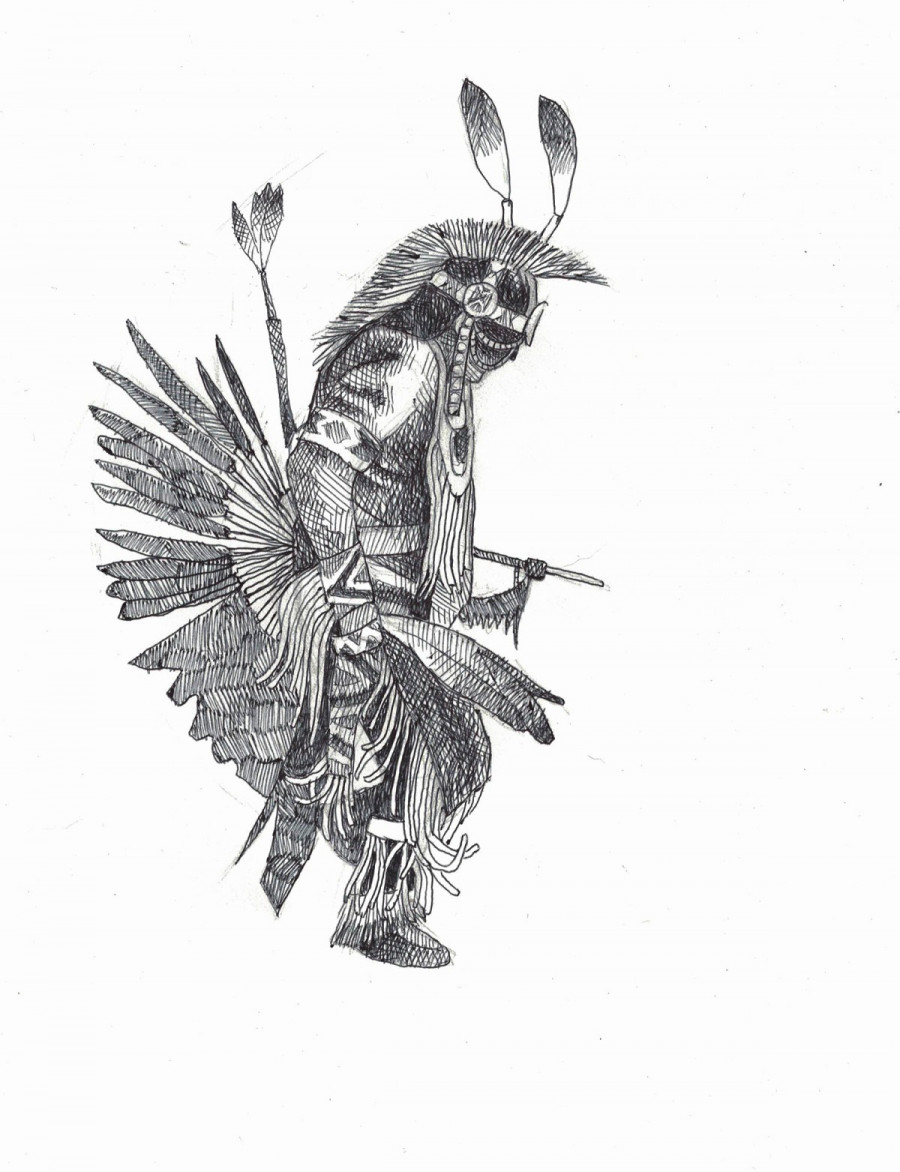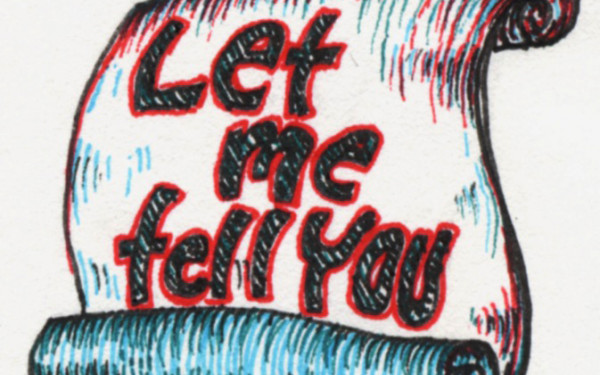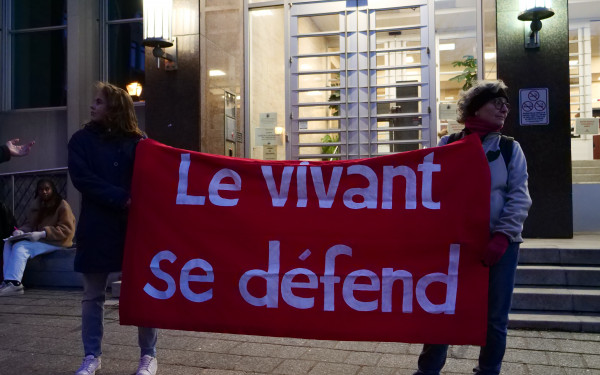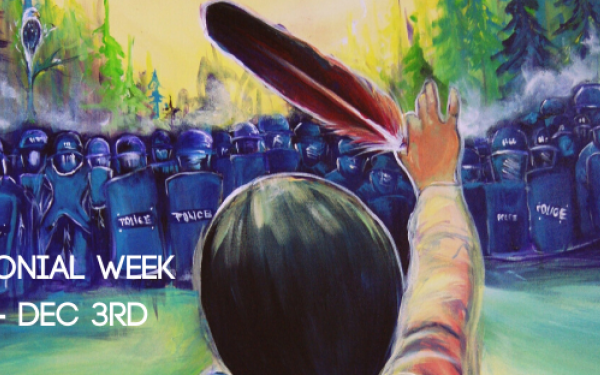Hip-Hop Is a Tool for Solidarity and Social Change
Last November, if a Montrealer wanted to watch Drake’s Hotline Bling on YouTube, they’d first have to watch at least five seconds of a TransCanada ad for the increasingly unpopular Energy East pipeline.
Judging by Montreal’s recent shutdown of the National Energy Board’s hearings, and the fact that over 80 municipalities in the area oppose the project, the six god’s ad space didn’t seem to sway the 514.
Let’s face it: it’s rare to witness MCs who oppose Big Oil through their rhythmic poetry and prose. Last year, Lee Reed released The Butcher, the Banker, and the Bitumen Tanker. Reed describes himself on his bandcamp website as “Kanadian HipHop’s oldest and grumpiest radical-lefty-loudmouth.”
The album didn’t get much airplay except on college radio. Reed performed at the 2015 Chemical Valley tour, organized by Aamjiwnaang First Nation activist Vanessa Gray— who is currently facing 25 years to life for having chained herself to the Enbridge Line 9 pipeline that carries tar sands bitumen through her First Nations reservation. The pipeline crosses Ontario and ends in Montreal.
Reed performed his “angry leftist hip-hop” with songs like Bad Gas.
Tar sands are so catastrophic / The largest ever manmade project / That feeds the peeps a broken promise / Bought it, now the beast has got it, / And folks are forced to pay the cost of it / True north, free for the markets / Ecocide at basement bargain / The earth bleeding in the process / The world pleading for us to stop it / Yes. Check that ass / That’s some bad gas you passing / Tar Sands Extractor / Court disaster for corporate masters /
At another hip-hop show, Zach Sherwin—of Epics Rap Battles of History—pretended to be the “hip-hoppiest oil lobbyist,” hired by Big Oil to prevent them from losing the public relations war with these solid head-nodding arguments.
Tree-huggers, chill, please try to stress less / If there’s a spill, there’ll be a mess, yes / But then there’s a clean-up, and that means jobs. Um, / That’s the opposite of a problem /
It actually was the Rap Battles for Social Justice who hired Sherwin to pretend to be a corporate shill with lyrical skill. It’s a beef that has played out in a series of Rap Battles Against the Tar Sands.
Is it out of place for rap artists to protest? Definitely not. Hip-hop as an international movement has had several successful MCs drop the knowledge and galvanize protest movements, for as long as the art form has existed.
Public Enemy helped make rap music “the black CNN” in the late eighties and early nineties. Rap as social commentary reached its zenith in the mid-90’s with artists like Nas, 2Pac, Lauryn Hill, and Black Star. But even when American hip-hop became synonymous in popular culture with gangsta / trap rap, “conscious” rap artists such as Immortal Technique, the Roots and Dead Prez continued to enlighten listeners.
The word “conscious” is actually a misnomer, though, since the label is rarely used by the artists themselves. Talib Kweli, for example, explained how’s he sick of being pigeonholed as such on his 2013 album Prisoner of Conscious.
Stepping outside of the Anglo American rap game, a lot of mainstream French and Québécois hip-hop artists have remained politically charged throughout the 2000s. Artists like Keny Arkana, Loco Locass and Samian—an Algonquin rapper whose song Plan Nord critiques Quebec’s neocolonial mining industry—are some examples among many. In Brazil, hip-hop has always played a vital role in community organizing and education in the favelas.
Bringing it back to the commercial US rap industry, many music critics have dubbed 2015 the comeback year for political hip-hop. Artists like Kendrick Lamar and Run the Jewels have amplified the voices of the Black Lives Matter movement, shining the light on police brutality and the white supremacist prison industrial complex.
The climate justice movement may seem unrelated to these struggles, but there is no environmental justice without racial justice. As Hurricane Katrina demonstrated, extreme weather makes racial inequalities even more extreme. Supporting Indigenous resistance against extreme energy projects on their territories is a vital way to fight for racial justice—locally and globally.
Granted, self-determination for Indigenous peoples has not been a focal point in the history of hip-hop, although artists sometimes acknowledge them as Q-Tip does on Manwomanboogie: “Red man was the first on the continent, this you gotta understand.” A Tribe Called Red, (a play on Q-Tip’s group A Tribe Called Quest) is a self-described “Native Producer and DJ crew” originating from Ottawa that has taken the international electronic and hip-hop scene by storm. Their new album We Are The Halluci Nation blends hip-hop with Indigenous self-determination, as the title track makes clear:
We have been called the Indians / We have been called Native American / We have been called hostile / We have been called Pagan / We have been called militant / We have been called many names /
Hip-hop is also proving to be a mobilizing and awareness-spreading tool for Indigenous struggles. The viral music video “Home To Me” is a recent example. Produced by traveling pop/hip-hop troupe N’We Jinan, twelve Grassy Narrows First Nation youth speak on the struggles with mercury contamination and forest clear-cuts in their northern Ontario community. The video helped bring national attention to their fight.
Rap music will continue to represent the struggles of marginalized communities around the world. As the global temperature rises and the climate chaos disproportionately affects those economically disadvantaged communities, we’re bound to hear more hip-hop artists speak out about climate justice.
_Dan Parker is an organizer with Rap Battles for Social Justice, which is organizing a Rap Battle for Climate Justice on Sept. 28 at Reggies Bar in Concordia’s Hall Building. The event will double as a fundraiser for Vanessa Gray’s court case, adding to the over $3,000 raised for her by Montreal’s hip-hop community. _






-7_600_375_90_s_c1.jpg)
